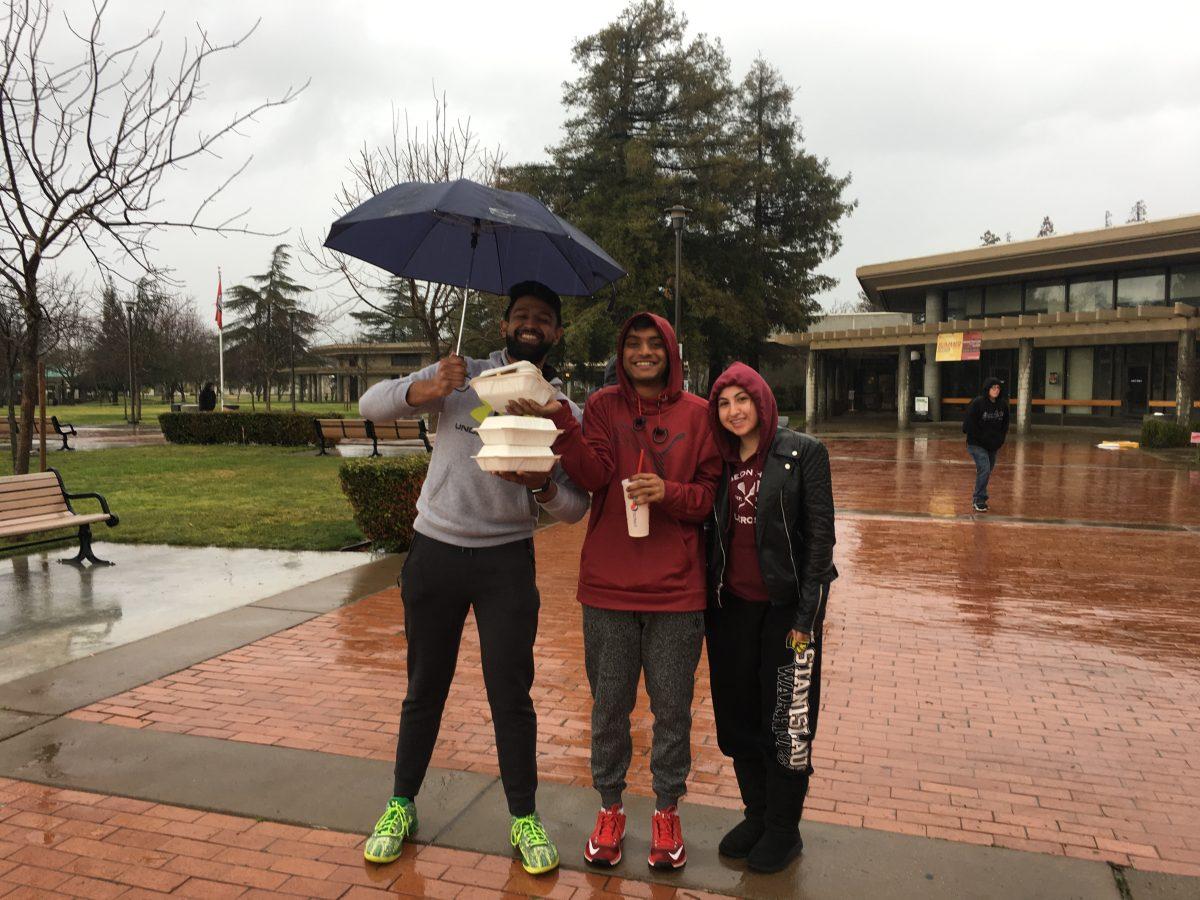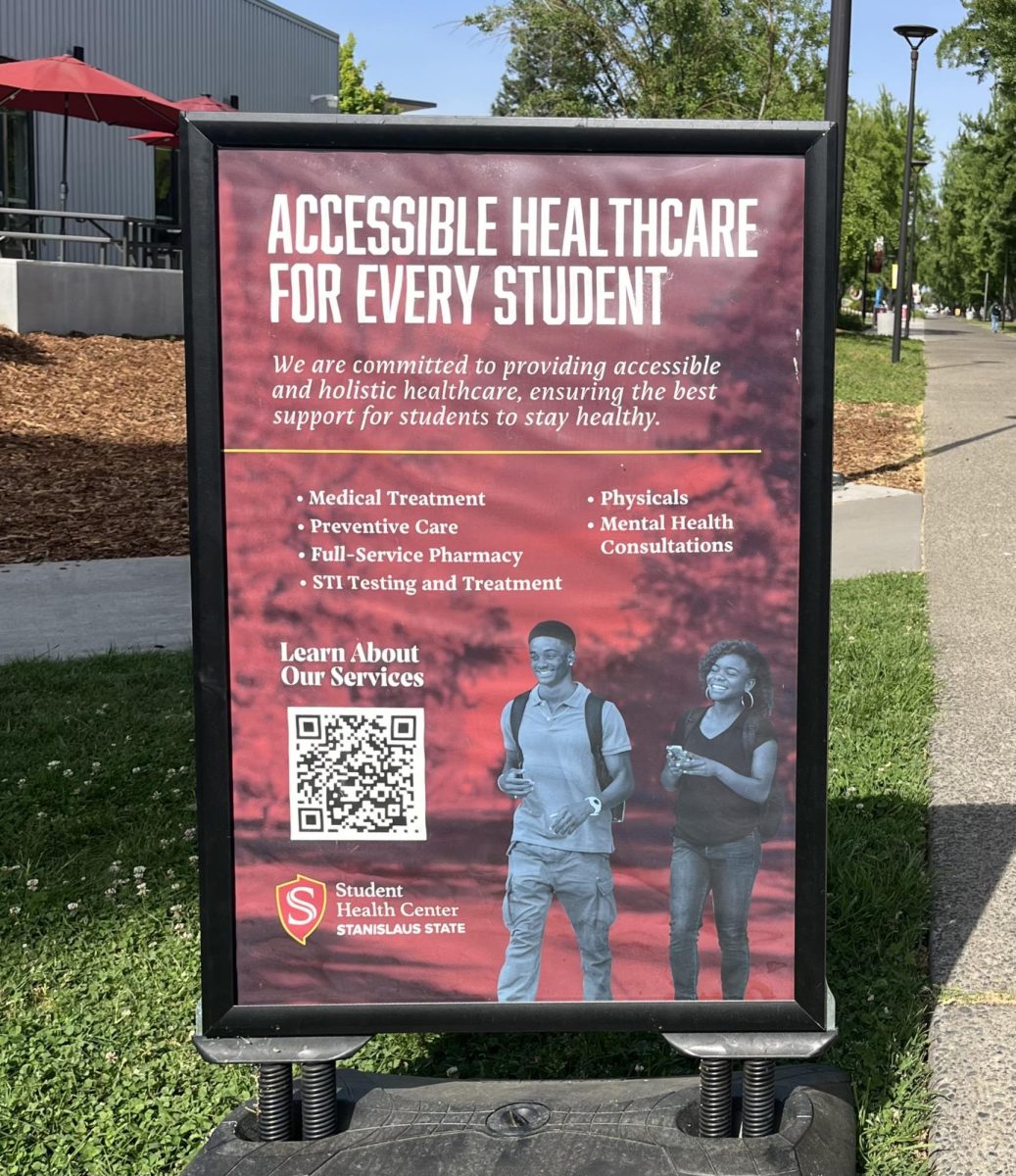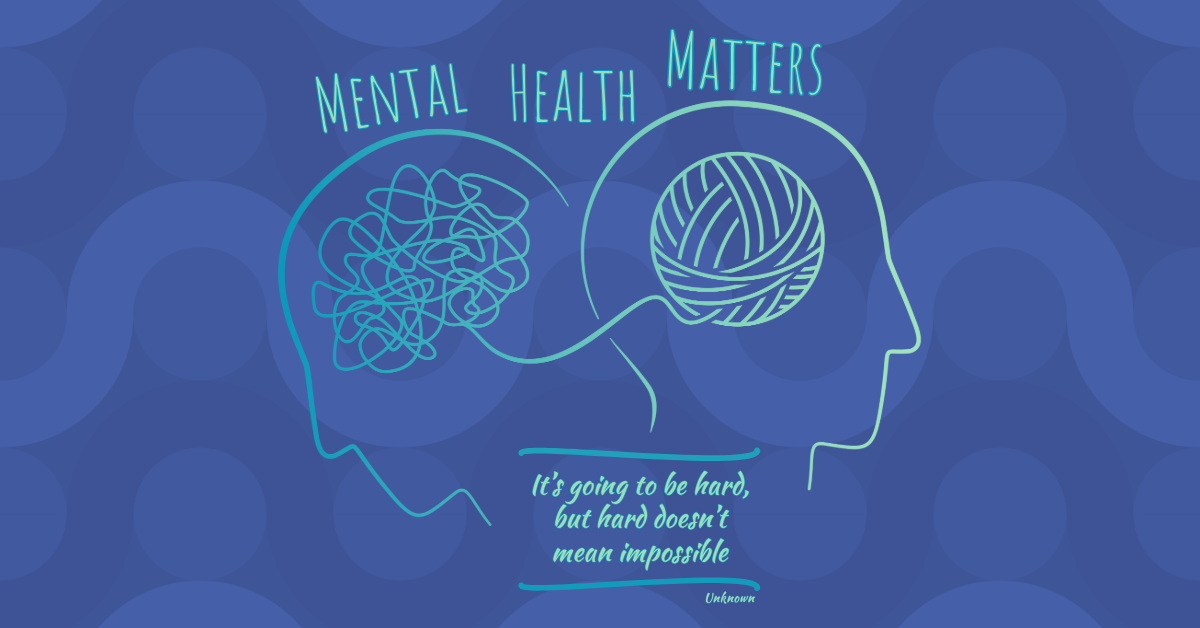Life as a college student is never an easy task when one has to balance school, social life, work, family issues and any other miscellaneous situation that could pop up.
Too often, however, college students forget to take care of themselves, whether it be mental or physical health, due to the mayhem in their lives.
Mental Health
According to the Student Health 101 Magazine, social support helps people feel less stressed, boosts physical health and “helps protect us from depression and anxiety.”
Dr. Daniel Berkow, Director of Psychological Counseling Services at Stan State, recommended one thing students could do would be to “prioritize what the most important things are to get done, have a schedule and know when it’s okay to say no.”
“Sometimes it’s okay to say no to something because you need to make time for the things that are the most important,” Dr. Berkow added.
Dr. Berkow then said that balancing work and time for yourself is also important. Find “some kind of balance where you get to let down, you get to destress and you get to sleep. Those are all important things and when those start to go, people’s performances aren’t their best.”
Harman Kaur (junior, Psychology) also thinks that time for yourself is important.
“I try to have at least one day just to myself to relax and not really do much because throughout the week I’m always doing something,” Kaur said, adding that making time for oneself, sleeping, eating enough and spending time with friends can be good for mental health.
Liz Parchen (senior, Kinesiology) tries her best to focus on a structured schedule for her daily routine.
“Not necessarily a strict routine everyday, but I try to keep myself busy everyday in order to not let my anxiety take control of me or let those thoughts bleed in,” Parchen said.
One thing that Georgina Salgado (junior, Psychology) did to take care of herself was ask for help.
“I know mental health issues are still so stigmatized that people refuse to acknowledge that they need help or even that something is wrong. I go to the doctor when my anxiety is really high and they’ve always found ways to take care of me,” Salgado said.
Salgado added that another thing that really helped her in the process of self-care was being taught organizational skills from her mentor.
“She taught me how to organize myself, and so I procrastinate less. I set up a weekly schedule and I follow it exactly as it’s written, and in that schedule I included time for myself, whether it’s getting my nails done, going shopping, working on a hobby, etc. I also find hobbies that are therapeutic because life’s not perfect and we need an outlet. I started painting and writing poetry,” she added.
Mental Healthcare Tips for Students
Although students can do as many face masks as they want, sometimes asking for help is the best option.
“If you’re getting too stressed out or too depressed or too anxious, those are signs to talk to a counselor. Counseling is free to students who are enrolled, so that’s another tip too. We’re here for you, we want to help you do well. We want to help you find a balance and keep your mood positive, your outlook positive, your feeling about yourself positive,” Dr. Berkow said.
Speaking from experience, Parchen also thought that asking for help is something that is an important option for students.
Along with the thought that asking for help was important, Salgado also thought that alone time for yourself is important.
“I would definitely tell students to muster up the courage to ask for help. I know it’s easier said than done, trust me, but it’s rewarding. I would also say to save time for yourself at least once a week, and I don’t mean grabbing food with a friend or anything like that. I mean time just for yourself by yourself,” Salgado said.
She added that standing up for yourself while trying to attain mental health can be important enough to either tell them how you feel or eventually “remove them from the equation.”
“You’re far too important to let people affect you in that way,” Salgado said.
Physical Health
Along with mental health, taking care of yourself physically is just as important for a college student.
Lucero Ambriz (senior, Nursing), a student-nurse extern, has experience in the medical field and knows how to best care for her physical health.
“Get rest, but as a college student, you can only do so much, so I time manage in order to get my rest in and I eat foods that are not too high in sugar and fat in order to help me feel good in general,” Ambriz said.
Laura Roberts, a Registered Nurse, said that when it comes to living healthy there are many factors that come into play, such as socio-economic statuses.
When it comes to taking care of herself, Roberts said, “Luckily I have other things in my life that have enabled me to be healthy. I try to eat healthy, I try not to eat too much, I try to be moderate. I get enough rest.”
Selene Millan (senior, Kinesiology), a Peer Health Educator at Stan State, said that she likes to do things that help her forget about school for a while.
“I do so by exercising and turning up my favorite songs, going out with my family and having some alone time to meditate. This allows me to center myself, feel balanced and rejuvenated,” Millan said.
Physical Healthcare Tips for Students
When it comes to being sick, Ambriz advises that students “Get rest, drink a lot of water and fluids that have electrolytes like Gatorade or Pedialyte. Try not to expose yourself too much to others who are sick, don’t share anything with anyone else like drinks, a lot of people do that and eat foods that are healthy for you and that are really dense in nutrients and calories in order to make up for them not eating all day.”
Ambriz said that illnesses spread because people “don’t wash their hands, they don’t drink enough fluids, water specifically, and they cough into their hands instead of coughing into their elbows.”
Millan said using the resources on campus, like the Student Recreation Complex (SRC), or Psychological Counseling Services is a good tip for trying to take care of yourself.
“Some other tips are to write out your thoughts/stresses, try to get a good night’s sleep every night or even take simple steps like drinking plenty of water every day. Water helps you feel less fatigued and more energized,” Millan said.
In terms of self-care overall, Roberts said that for more tips and advice, students can go to the Student Health101 online magazine.
“It talks about things that you could do to exercise, to feel empowered, emotional wellness, your nutrition, a lot of resources on the specifics,” Roberts said.


